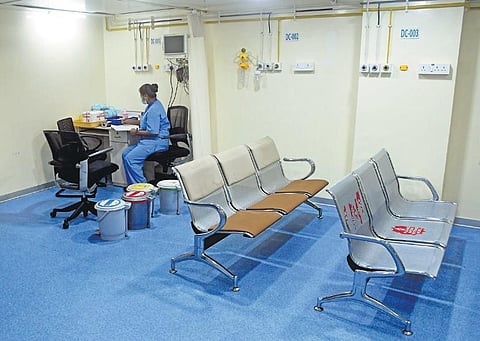

BENGALURU: The Comptroller and Auditor General of India’s 2021 performance report on the Karnataka State Road Safety Authority (KSRSA) has unearthed a dismal lack of infrastructure, especially facilities for treating trauma cases, in district hospitals along National Highways in Karnataka.
The authority has established that no action plan was formed to create trauma care centres in 22 districts of the state.
“Accident victims did not receive timely medical care in about 90,000 cases, attributed to the base set-up of ambulances far away, or a delay in dispatching ambulances to the scene of accident. In 6,000 cases, the delay in dispatch was over 30 minutes,” the CAG report further shows.
Also, the 2015 objective of the KSRSA seeking reduction in road accidents and deaths was not fulfilled. The audit report noticed that the targets set in 2015 were not met, with the fatality rate having risen by 2020.
Medical facilities along National Highways must provide definitive care to trauma patients, with specialists including surgeons and orthopedists being available round the clock. In an accident in Ramanagara, for instance, a patient succumbed to injury due to the unavailability of a specialist on call, and had to be shifted to another hospital. In a bike accident on the highway in Tumakuru, a pillion-rider lost his life to injuries while being shifted to a private hospital, due to lack of facilities at the nearest government hospital.
As part of an inspection recently, two district hospitals in Belagavi and Gadag were also examined. These two districts in North Karnataka had an overall 17 per cent shortage of staff and 30 per cent shortage of specialists. The sanctioned strength only worked a single shift and only a single doctor was available in hospitals for the rest of the day. The report also noted that an efficient emergency response system in providing proper medical care would improve chances of survival.
Meanwhile, the report recommends the KSRSA to issue directions to the road managing authorities (RMAs) to prepare an action plan for rectification of identified black spots, and to undertake maintenance work. They should also ensure that RMAs maintain comprehensive data of roads under their jurisdiction and update it periodically. Strengthening of highway patrolling and adequate number of base locations for ambulances was suggested to reduce response time.